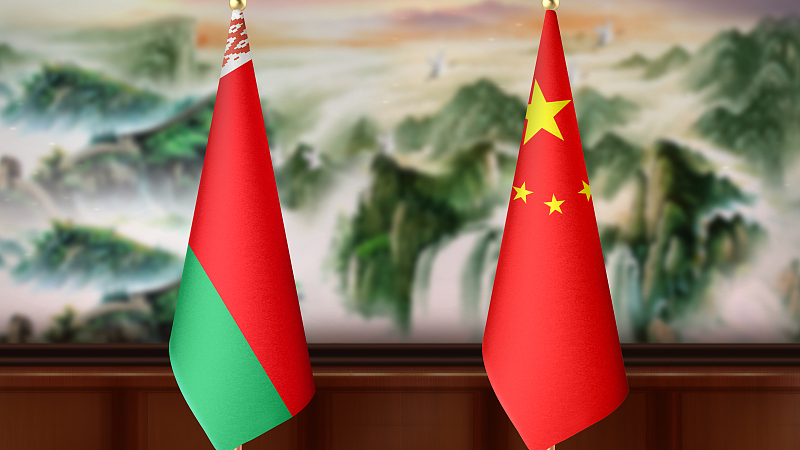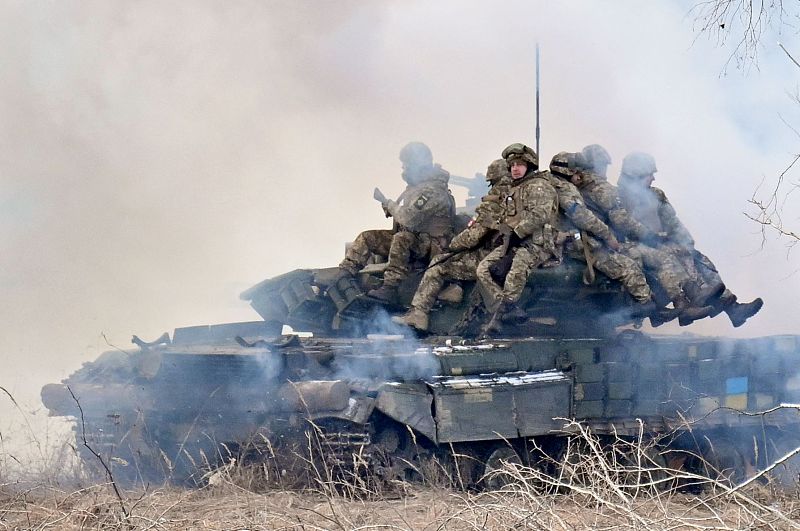
National flags of Belarus and China. /CFP
National flags of Belarus and China. /CFP
Editor's note: Nikola Mikovic is a freelance journalist based in Serbia. He covers mostly Russian, Ukrainian and Belarusian foreign policy issues and writes for multiple web magazines. The article reflects the author's opinions, and not necessarily those of CGTN.
For Belarus, China is one of the most important economic partners. Politically, increasing bilateral ties with Beijing, seems to be among Minsk's top priorities amid turbulent times when the Ukraine conflict is escalating.
"If you want peace, prepare for war," appears to be Belarus' major military and political strategy. The former Soviet republic has strengthened its armed forces and held joint military exercises with its ally Russia, while Minsk seeks to expand its strategic partnership with China.
"We have absolutely no intentions to attack Ukraine. But God forbid aggression against the Belarusian state is committed from the territory of Ukraine. In that case we will be forced to respond. And I am sure if that happens we will receive support from the entire international community, including the People's Republic of China," said Belarus' President Alexander Lukashenko on February 23, when announcing his trip to Beijing, from February 28 to March 2. He said China has become a global country with its own global policy.
"We have been a reliable friend of the Chinese people in recent decades. And we will always remain so," said Lukashenko.
This year marks the 31st anniversary of China-Belarus diplomatic relations, which have been upgraded since 2020 when the COVID-19 pandemic broke out, and Lukashenko was confronting Western-backed protests at home. Beijing has repeatedly said that it will continue to support Belarus to maintain its national stability, opposing "external forces' interference in Belarus' domestic affairs under any pretext" and "any reckless unilateral sanctions" against the country.
Nonetheless, there are indications suggesting that Washington could prevent Beijing from expanding its cooperation with Minsk, as it already seeks to limit China's relations with Russia. Sanctions on Moscow were never imposed by the United Nations Security Council, but by Western countries unilaterally, which means that, at least theoretically, nothing prevents non-Western nations from doing any kind of business with the Russian Federation. The U.S. will keep pressuring China, as well as other countries, not to provide any assistance not only to Russia, but to Belarus.

Ukrainian soldiers sit atop main battle tanks deploying smokescreens as they take part in military drills as they work out a possible attack in Chernobyl zone in few kilometers from the border with Belarus, February 20, 2023. /CFP
Ukrainian soldiers sit atop main battle tanks deploying smokescreens as they take part in military drills as they work out a possible attack in Chernobyl zone in few kilometers from the border with Belarus, February 20, 2023. /CFP
Yet, the U.S. can not completely stop economic cooperation between China and Belarus. There are 35 science and technology projects in Belarus that China plans to finance by 2024, according to Chairman of the State Committee for Science and Technology Sergei Shlychkov. The most important one is the China-Belarus Industrial Park Great Stone near Minsk. Under the current circumstances, when Belarus is living under Western sanctions, an increased economic cooperation with China could help Belarusian authorities preserve social stability at home.
Lukashenko seeks to secure more business and investment agreements with Beijing, although he aims to increase political relations with China as well. Belarus sees China along with Russia as key markets for its export-oriented economy, especially after the West had imposed stiff sanctions on Minsk. Politically, an open and a direct support from China, is essential for Belarus.
But the problem for Lukashenko is that the West remains resolute in its intention to continue arming Ukraine, which is why chances for a peace, or a ceasefire deal, remain slim. So far, Minsk has managed to carefully maneuver over the past year, and has avoided getting directly involved in hostilities over its neighboring country. Lukashenko is set to preserve such a political course, aware that Belarus' potential involvement in the Ukraine conflict could lead to dramatic consequences not only for his country, but for all of Eastern Europe.
Finally, given that the Belarusian President arrives in China shortly after Beijing announced its 12-point peace position paper aiming to end hostilities in Ukraine, Lukashenko and his Chinese partners are expected to ask Moscow and Kyiv to give peace a chance.
(If you want to contribute and have specific expertise, please contact us at opinions@cgtn.com. Follow @thouse_opinions on Twitter to discover the latest commentaries on CGTN Opinion Section.)